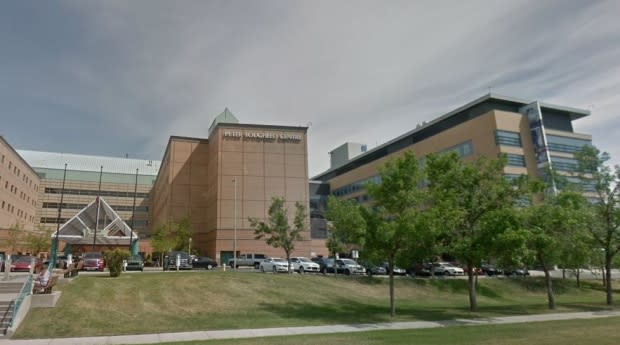Testing during worst of Alberta's outbreak suggests COVID-19 wasn't slipping into hospitals undetected
A pilot project conducted at three Alberta hospitals at the height of the pandemic shows patients were not being admitted with undetected cases of COVID-19.
Over a six-week period, between April 9 and May 23, all patients admitted through the emergency departments at the Peter Lougheed Centre in Calgary, the Royal Alexandra Hospital in Edmonton and the Red Deer Regional Hospital were screened for symptoms and tested for COVID-19. This was done regardless of whether or not any symptoms were identified.
The testing project was carried out to provide a snapshot of just how often asymptomatic carriers of the virus that causes COVID-19 were presenting to the ER — and to address concerns about potential transmission to health-care workers or other patients in the hospitals.
During the pilot project, 3,304 people were admitted through the ERs at the three hospitals and screened for symptoms.
Of the 1,814 patients deemed asymptomatic, no cases of COVID-19 were found.
"Actually, we were a little surprised," said Dr. Braden Manns, the co-chair of the scientific advisory group for Alberta Health Services, a professor at the University of Calgary and and one of the authors of the review.
"This was happening right at the peak of all the outbreaks in Calgary. It was happening at the height of our reproducible number for the virus.… I think we all thought we would probably see around one per cent of people who ended up testing positive."

Of the patients deemed symptomatic, 4.5 per cent tested positive across the three sites, with the highest positive rate at the Peter Lougheed Hospital in Calgary (7.5 per cent).
"So it wasn't like there was nobody testing positive out there. But when you carefully screened people, you could identify who needed to be screened and then who would need to be isolated in the hospital as well to keep staff safe," said Manns.
"It's really important people continue to be vigilant and screen carefully for those types of symptoms and for risk that indicates you need to be tested."
The review concludes current screening measures at Alberta hospitals appear effective.
"This suggests that careful assessment of symptoms during the admission process is effective at identifying patients who should be tested (and isolated) in the context of hospital admission. Given the state of the current pandemic in Alberta (a low reproductive number and low daily case numbers), screening people without symptoms who are admitted to hospital through the emergency department and who are at low risk is not supported," the review's authors stated.
"This recommendation may need to be re-evaluated should higher levels of community transmission be encountered as relaxation of social distancing and other control measures occurs."
Officials keep an eye on outbreak at Misericordia Hospital
The review was conducted prior to the outbreak at Edmonton's Misericordia hospital.
Five deaths are now linked to that outbreak — Alberta Health reported Friday that one death, previously believed to be connected, had been reclassified.
An additional 36 cases had been confirmed as of Friday, including patients, staff and two cases in the community.
Alberta Health Services says it carefully screens all hospital patients for symptoms and potential exposure when they arrive at the hospital.
According to AHS, those who are found to have symptoms are tested. And, since May 30, AHS says it's offered asymptomatic testing to people who request it in emergency rooms and urgent care centres.
Patients are regularly monitored for symptoms once admitted, according to AHS.
"As the pilot project concluded, careful and vigorous assessment of symptoms during the admission process has been shown to be effective at identifying patients who should be tested (and isolated)," an AHS spokesperson said in a statement emailed to CBC News.
"At this time, our current screening and testing protocols, including voluntary asymptomatic testing in EDs and UCCs, continues. However, we are carefully monitoring the situation at the Misericordia and we will reassess our protocols accordingly."

